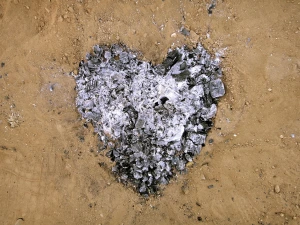I don’t know about you, but I’m getting tired of the word “unprecedented.” Its literal meaning is “never before known or experienced.” And it describes what we are going through. We’ve never known a time quite like this. We’ve never experienced such widespread fear and suffering. Global travel has spread this virus further and more quickly than any others that have come before. Technology has made us aware more of what is happening all over the world and what might be next for our nation, state and community. It’s all so new and fast that we’ve run out of ways to describe what’s happening.
And yet. Our world has suffered cataclysm after cataclysm. Before the time of humans, wild swings in temperature and climate resulted in the death and extinction of multitudes of species. Humans have endured plagues and outbreaks through the centuries, including in recent memory smallpox, polio and the COVID related epidemics of SARS and MERS. Even now people around the globe suffer death from starvation, conflict, malaria and a host of diseases that debilitate and destroy.
But this touches us all. No one is immune. The virus knows no boundaries of nation, class, economics or race. My clergy friends in South Sudan have taken up their loudspeakers and are traveling through the jungle and small villages in their dioceses to broadcast information about the virus to people who have no access to TV or radio and don’t know what might be invisibly threatening them. Bodies are piling up in Europe next to famous landmarks and even in ice rinks. Health care workers everywhere are tired, scared and overwhelmed. And right now, outside the doors of St. Luke’s in the Ballard Commons Park and next to the library, 30-45 people are sleeping under tents and tarps on the concrete with inadequate shelter, running water, garbage pick-up, food and medical care. It’s shocking. It’s terrifying. It’s unprecedented.
We enter Holy Week as Church in unprecedented times. We can only gather virtually, unable to share rituals of palms, water, wine and bread in person. Kept apart physically from nearly everyone except those in our same household and solitary if we live alone.
Today we begin the oft-repeated journey of Holy Week, walking the way of Jesus’s last days from triumph and acclaim to suffering and death. Most of us have been here before. It is, precedented, although that’s not a word found in the dictionary. Over centuries the people of God have located their own sorrow and pain along with the world’s tragedies in the Passion of Christ. We recognize our own fickleness in the behavior of the crowd who move so quickly, in just a matter of days from chants of “Hosanna” to “Crucify Him!” We are reminded of our own weakness in the failure of disciples who cannot stay awake to watch with Jesus in his darkest hours. We cringe at Judas’s betrayal and Peter’s denial and know we might have done the same. We mourn in anguish with Mary and the women who watch helplessly from the foot of the cross.
And as we look upon the crucified one, we find our own pain and sorrow mirrored and magnified. We encounter the one who identifies in every way with our human limitations and difficulties.
Are you feeling afraid and anxious? Jesus entered Jerusalem aware that it would probably lead to his death. He wrestled in the garden with his desire to avoid the cup of sorrow that lay ahead. He was filled with foreboding.
Are you feeling powerless and out of control? Jesus encountered systems of organized power and authority that were confused, at odds with one another, self-serving, self-protective and ultimately death-dealing in their bureaucratic response to a perceived threat.
Are you in grief and disbelief at the suffering you see in the sick and dying, in the challenges faced by those on the front lines, in the shock of those, whose loved ones died so quickly and without anyone familiar by their side? Jesus experienced unimaginable suffering, abandonment and rejection by nearly everyone. He died alone, on a cross, with his hands nailed down and no one allowed to approach him or touch him in his final hours.
This Holy Week, we cry out with the psalmist, “Have mercy on me, O Lord, for I am in trouble; my eye is consumed with sorrow.” We will be walking the way of the cross this week and into a future that will be filled with more suffering, sorrow and dying.
This Passion Week we may be crying out with Jesus, “My God, my God, why have you forsaken me?” How could our lives have been upended in such a short time? How could our government be so unprepared? How could our economy tank so quickly? How could we lose so many freedoms and privileges we took for granted just one short month ago? Who will be our savior? Who will rescue us? Where is God?
Scripture points us to hope in some unexpected ways during Holy Week. The long tradition of God’s way of working in the world is often surprising, unlooked for and contrary to what we might anticipate. For instance, the Savior of the world enters the holy city of Jerusalem on a donkey, with simple palm fronds and poor people’s clothing as his red carpet. Unlike military and political leaders who head up a parade on horses with weapons and soldiers, pomp and circumstance, Jesus demonstrates power and authority that is non-violent, humble, rooted in his character and identity, in his teaching and example and in his relationship with God.
We hear that example lauded in the hymn from Philippians. “Let the same mind be in you that was in Christ Jesus, who, though he was in the form of God, did not regard equality with God as something to be exploited, but emptied himself, taking the form of a slave, being born in human likeness. And being found in human form, he humbled himself and became obedient to the point of death—even death on a cross.”
Finally as his body hangs on the cross and he breathes his last, a Roman centurion, one of the guard appointed to insure his death was carried out properly, one who shared no common religious background with Jesus or his followers, looks upon his broken, wounded body and exclaims, “Truly this man was God’s Son.”
For those who have eyes to see, God is present in the humble, the ones who serve others, the suffering and lowly. God has determined to dwell with humanity through the most difficult and dangerous times.
These times may be unprecedented but Jesus has been with us through the very worst that the world can dish out time and time again. Over the centuries we have turned to him in prayer in our darkest hours. We have contemplated his suffering and death and found resonance in the suffering and death we experience. What we are going through is not unprecedented to Jesus. It is known to God. It has been experienced by Jesus.
We certainly wish we were not here. But God will give us strength and courage for the “living of these days.” We are to have the mind of Christ and to follow the example of Jesus in the midst of this pandemic. When he died, very few people would have guessed that his life, death and resurrection would bring faith, hope and love into the world in ways that had never before been experienced. No one would have expected that his followers would offer themselves in love and service to the least, last and lost of every generation in every part of the globe. No one could have foreseen the apostle, martyrs, saints, priests, prophets and millions of ordinary, humble individuals who would change the world because they followed the crucified one.
We, Church are called to stand firm in the trauma of the present. We are to remember our call to love and service. We are to be those who care for others, hold community together, speak out for the marginalized and stand up for those who are being persecuted like our Asian brothers and sisters who are being unfairly blamed for this outbreak. Church, we are to come through to the other side of this apocalypse holding onto hope, faith and love, ready to rebuild relationships and community in a broken and distrustful society. We are to lead by humble example, being willing to sacrifice ourselves for the sake of others. We are to be willing to pour out our resources on behalf of those who have very little.
God knows we won’t do this perfectly. We are like those failed, flawed, feeble disciples who get afraid, try to escape reality, become self-protective and lose sight of Jesus. We will not always have the mind of Christ because our own minds have been overtaken by fear, mind-numbing escapism and distrust. But God’s Spirit will never leave us and will bring us back to Jesus and back to our best selves. We will find ways to witness to the love of Jesus by word and example. We will find ways to keep serving our neighbor as ourselves. We will stand up for the respect and dignity of every human being. We will pray for the sick and suffering. We will comfort the grieving.
And, if it be our turn, we will walk through the valley of the shadow of death, but not alone, for the Christ of the cross will walk with us to the end, beyond this pandemic, through death into the new world and new life that God has promised.
If you have always been too busy to fully participate in Holy Week, the Triduum, the great three days of Maundy Thursday, Good Friday and the Easter Vigil, this may be your best chance. From the comfort of your own home, you have the option to join others gathered around their tables for a Maundy Thursday lunch via Zoom. You can experience Good Friday and the adoration of the cross through our now regular Facebook live stream and the Great Vigil of Easter on Saturday evening via St. Mark’s Cathedral’s livestream. In these services every human emotion and experience is encapsulated and held by God. You will not be alone, but rather joined by others all over the globe who follow the crucified one in the hope of the resurrection to new life.



